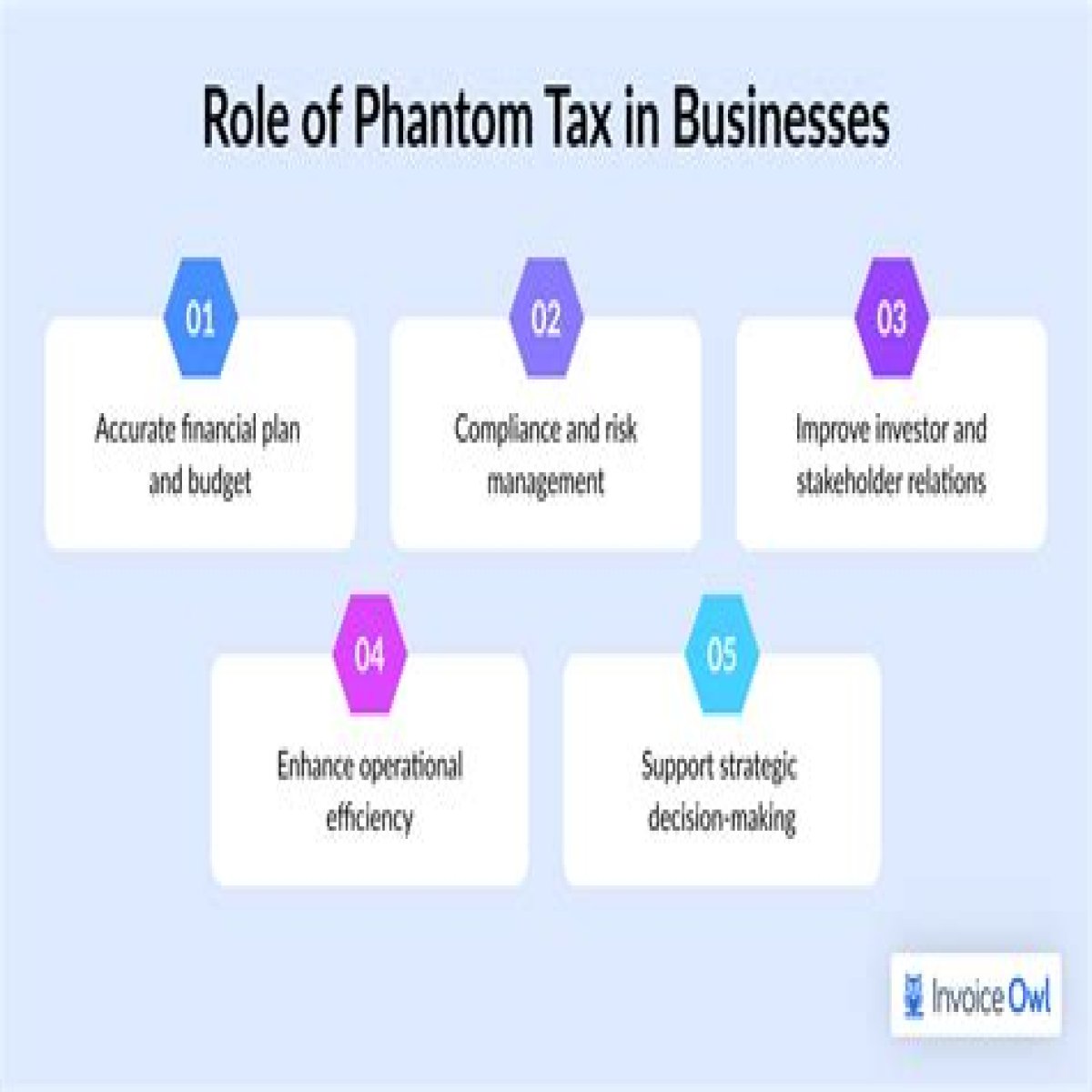What is Phantom Tax?
A phantom tax is a tax that is not explicitly stated as such, but rather is hidden within the price of goods or services. Phantom taxes can take many forms, including sales tax, excise tax, and import duties. They are often used to raise revenue without increasing the headline tax rate.
Phantom taxes can be a significant burden on consumers and businesses. They can make it difficult to budget and can erode the value of savings and investments. In some cases, phantom taxes can even lead to inflation.
There are a number of ways to reduce the impact of phantom taxes. One is to shop around for goods and services that are not subject to phantom taxes. Another is to buy in bulk, which can help to reduce the per-unit cost of goods and services.
Phantom taxes are a major problem that can have a significant impact on the economy. By understanding phantom taxes and taking steps to reduce their impact, consumers and businesses can save money and protect their financial future.
Phantom Tax Meaning
- Phantom taxes are hidden within the price of goods and services.
- They can take many forms, including sales tax, excise tax, and import duties.
- Phantom taxes can be a significant burden on consumers and businesses.
- There are a number of ways to reduce the impact of phantom taxes.
Phantom Tax Meaning
Phantom taxes are an important source of revenue for governments. They can be used to fund public services, such as education, healthcare, and infrastructure. Phantom taxes can also be used to reduce the deficit and promote economic growth.
However, phantom taxes can also have a number of negative consequences. They can lead to inflation, reduce consumer spending, and hurt businesses. As a result, it is important to carefully consider the costs and benefits of phantom taxes before implementing them.
Phantom Tax Meaning
Phantom taxes have been around for centuries. The first known phantom tax was the sales tax, which was introduced in ancient Rome. Sales taxes were also used in medieval Europe and colonial America.
In the 19th century, phantom taxes became increasingly common as governments sought new ways to raise revenue. The United States introduced a federal income tax in 1861, and many other countries followed suit.
Today, phantom taxes are a major source of revenue for governments around the world. They are used to fund a wide range of public services and programs.
Phantom Tax Meaning
Phantom taxes are a complex issue with a long history. They can have both positive and negative consequences, and it is important to carefully consider their costs and benefits before implementing them.
Phantom Tax Meaning
This section provides answers to frequently asked questions about phantom tax meaning. These questions and answers are intended to provide a better understanding of phantom taxes and their implications.
Question 1: What is the difference between a phantom tax and a regular tax?
A regular tax is a tax that is explicitly stated as such. It is typically collected by a government agency and used to fund public services. A phantom tax, on the other hand, is a tax that is hidden within the price of goods or services. It is not always clear how much of the price of a good or service is due to phantom taxes.
Question 2: Why do governments use phantom taxes?
Governments use phantom taxes for a variety of reasons. One reason is that phantom taxes can be used to raise revenue without increasing the headline tax rate. Another reason is that phantom taxes can be used to target specific goods or services. For example, a government may impose a phantom tax on cigarettes or alcohol in order to discourage their consumption.
Question 3: What are the consequences of phantom taxes?
Phantom taxes can have a number of negative consequences. They can lead to inflation, reduce consumer spending, and hurt businesses. Phantom taxes can also make it difficult for consumers to budget and can erode the value of savings and investments.
Question 4: What can be done to reduce the impact of phantom taxes?
There are a number of things that consumers and businesses can do to reduce the impact of phantom taxes. One is to shop around for goods and services that are not subject to phantom taxes. Another is to buy in bulk, which can help to reduce the per-unit cost of goods and services. Finally, consumers and businesses can support organizations that are working to reduce phantom taxes.
Summary: Phantom taxes are a complex issue with a number of potential consequences. It is important for consumers and businesses to be aware of phantom taxes and to take steps to reduce their impact.
Phantom Tax Meaning
Phantom taxes are a complex issue with a number of potential consequences. They can lead to inflation, reduce consumer spending, and hurt businesses. Phantom taxes can also make it difficult for consumers to budget and can erode the value of savings and investments.
It is important for consumers and businesses to be aware of phantom taxes and to take steps to reduce their impact. One way to do this is to shop around for goods and services that are not subject to phantom taxes. Another way is to buy in bulk, which can help to reduce the per-unit cost of goods and services. Finally, consumers and businesses can support organizations that are working to reduce phantom taxes.
By taking these steps, consumers and businesses can help to reduce the impact of phantom taxes and protect their financial future.
Meet Karen Herskovitz: A Leading Expert In [Field]Robin Dearden: The Legendary Actress's LegacyTop Resources On Robert Hawking: A Comprehensive Guide
